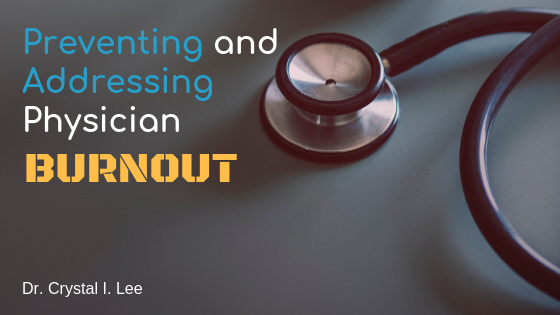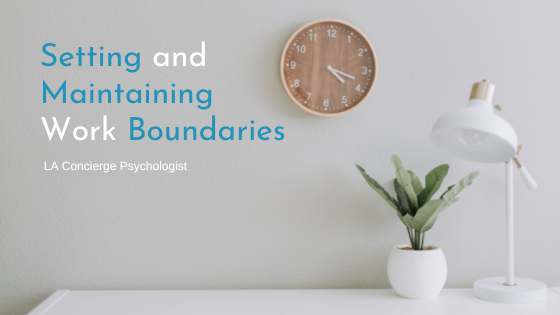Physician burnout (or career fatigue) is the not so hidden, dirty little secret of the medical world. In a recent study, 41% of doctors reported at least one symptom of burnout. Another study showed that physicians have the highest rate of suicide of all professions. Rates were significantly higher than the general population.
This is scary stuff.
Physician burnout not only involves the pain and suffering of doctors, but it comes with serious real-life consequences for patients, too. Things such as misdiagnosis or shoddy treatment. So what can you do if you or a loved one is a doctor at risk for burnout, depression, and suicidal ideation?
What is Burnout?
When people picture burnout, sometimes they envision a doctor completely unraveled and gone over the edge. This may be true of some doctors, but it’s usually something more subtle than that. In its essence, burnout is a state of emotional, mental, and physical exhaustion. It’s often connected with depression, alcoholism, and potentially even suicide. Burnout is particularly insidious because it is a gradual process that increases over time. It’s like a cancer that grows over time until you can no longer ignore it.
What Causes Burnout?
Reasons for burnout are different for each doctor. However, there are a few common culprits that reportedly lead to burnout. My clients often point to one of the following:
- Lack of work-life balance
- Pressure to see more patients or work longer days
- Increasing non-patient centered duties
- Feelings of lack of control (if working in a larger system, such as a hospital)
Through my work with physicians, I’ve discovered a few more reasons. Sources of burnout doctors that get uncovered in therapy are:
- Workaholic tendencies
- Perfectionistic attitudes towards work
- The need to be in control and reluctance delegating
- Belief they need to be everyone to everyone at all times (aka a “superhero” complex)
How do I know if I am burnt-out?
As noted above, burnout can sneak up on you. It slowly and gradually builds on itself. Symptoms of burnout can be broken down into three categories. You may find that you have symptoms in just one category.
1. Behavioral
- Withdrawing from responsibilities
- Isolation from others
- Procrastination
- Increased reliance on food, drugs, or alcohol to cope
- Irritability or emotional volatility
- Skipping work, increased tardiness, or making excuses to leave early
2. Physical
- Feeling tired and drained most of the time
- Getting sick more often
- Frequent headaches, back pain, and muscle aches
- Change in appetite or sleep habits
3. Emotional
- Feeling emotionally exhausted
- Detachment from patients
- Sense of failure and self-doubt
- Feeling helpless, trapped, or defeated
- Loss of motivation
- Increased cynicism
- Decreased sense of hope and positivity
How to Prevent Burnout
Thankfully, burn out is not an inevitable byproduct of being a doctor. There are things you can do to prevent it. Not all of these suggestions work for everyone. But here are some general suggestions that have helped clients of mine.
Take Care of the Basics
You need a strong foundation for emotional wellbeing. And the foundation is made of eating healthfully, exercising regularly, and getting adequate sleep. If any of these things are lacking, it’s more difficult to handle long and stressful work days.
Start Your Day Off Right
Take time to prepare yourself for the day ahead of you. This doesn’t just mean physically gathering your belongings. It also entails mentally preparing yourself. This might include things like eating breakfast mindfully, taking a moment to breathe and center yourself, reciting a self-compassionate mantra, or listening to an energizing song.
Incorporate Little Self-care Breaks
As a busy professional, it can be difficult to carve out large amounts of time to engage in self-care. It’s much easier to sprinkle in short self-care breaks throughout the day. For example, you might take a minute to watch a hilarious viral video. Or perhaps you can use five minutes to take a brief walk in your office building.
Set Boundaries
Boundaries are not just for work; they’re for all aspects of life. Figure out what your absolute, non-negotiable priorities are related to work, friends, and family. Then stick to them. Get comfortable with holding firm to boundaries, saying no, and disappointing people. You don’t have to be everything to everyone at all times. That’s a recipe for exhaustion.
Remember Why You Went into Medicine
Reconnect with the original reason why you got into medicine in the first place. Every day at work, search for that “why” in your work. Sometimes we get so busy going through the motions of work, we miss all the amazing moments of purpose and meaning.
Schedule in Self-care
Carve out time in your weekly schedule to engage in longer, more restful and restorative self-care activities. Including it in your actual calendar keeps it top of mind, makes it a priority, and increases the likelihood you’ll actually follow-through.
Learn what constitutes helpful self-care.
Addressing Already Active Burnout
Maybe you’re already burnt-out. Don’t panic! You’re not alone— almost half of your colleagues have also experienced burnout. Just remember, it has nothing to do with how good of a doctor you are. It doesn’t mean you’re weak or not cut out for the work. It just means you’re human. You’re not infallible, and that’s okay.
If you’re actively suffering, still incorporate the preventative activities listed above. They’re helpful in ameliorating symptoms of burnout. In addition, you can try the following tips:
Get (and Use) Support
Leaning on your current support system can work wonders. You don’t have to handle your stress and depression in isolation. That’s actually the worst thing you can do if you’re burnt-out. Open up to your partner, family, and/or friends. Leaning on close colleagues or finding an informal support group online can also be helpful. And, of course, working with a psychologist who is familiar with physician burn out (such as yours truly) can be immensely helpful. This is especially true for those who are not as comfortable being so vulnerable with loved ones.
Limit Sources of Negativity
You’re already feeling crappy; there’s no need to compound that awful feeling by hanging out with Negative Nancy’s and Debbie Downers. Generally speaking, avoid spending time with people who tend to make you feel bad or cause drama. And if things such as current events put you in a negative mindset, it’s okay to stop watching the news until you’re feeling more resilient.
Find New Sources of Joy
It’s not enough to just avoid negativity. You need to start injecting joy and positivity into your life. It’s needed to balance out the stress you’re feeling. Oftentimes when you’re burnt-out, you stop doing things that bring positivity into your life. You withdraw from loved ones and stop engaging in leisure activities and hobbies. Reconnect with those former sources of joy. Even take some time to find new interests, hobbies, and/or friends. This will inject some new, positive energy into your life.
Take Time Off
Sometimes you just need to step away from the source of burnout. This is really difficult for some people to do. You feel responsible for your patients, and you don’t want to let them down. But oftentimes a break from work is just the trick. Use the time off to rest, recharge, and gain perspective on your priorities. You’ll come back refreshed and maybe even with new ideas on how to reduce chronic stress at work!
Click here for more information on executive coaching.
Want the support of a professional who has worked extensively with doctors? Send us a message or book a free 20 minute consultation call with Dr. Barajas or Dr. Goldman.




